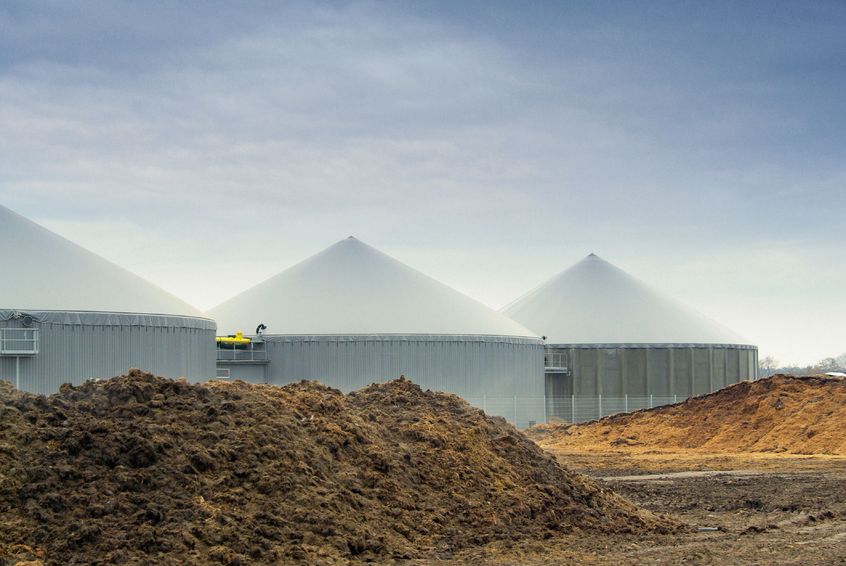'Disproportionately incentivised': Sheep sector calls for decreased support for anaerobic digestion

Sheep farmers are calling for the government to rethink incentives for anaerobic digestion plants and large-scale biomass burners post-Brexit.
The National Sheep Association (NSA) is urging a review on the impact energy grant structures are having on the countryside, which the group says is "disproportionately incentivised".
The organisation has concerns over the pressure anaerobic digestion (AD) plants and large-scale biomass burners place on the sheep sector – and says the current extreme weather has further exacerbated the situation.
Phil Stocker, NSA Chief Executive explained: “Forage stocks were completely used up during the harsh winter we experienced, but instead of being able to rebuild stores, the dry weather means sheep farmers are already using winter feeds to sustain flocks due to a shortage of grass.
“The risk of feed and bedding shortages is fast approaching and costs are rocketing, yet potential feed stock, cereals, maize and grass, as well as straw for biomass, is dedicated to energy production. That is why NSA is calling for a rethink around incentives for AD plants and large-scale biomass burners.”
Crops for energy are currently eligible for the Basic Payment Scheme (BPS) as well as Renewable Obligation Certificates (ROCs) and Feed in Tariffs (FiTs).
But Mr Stocker said this is an example of "dual-funding" which "distorts the market to the disadvantage of livestock farmers".
“Dual-funding of land specifically for this form of energy production is particularly unsettling given that growing crops for digesters and burners takes land out of food production, whereas other renewable energy options (such as solar panels and wind turbines) allow grazing to continue but are discounted from BPS,” he added.
'Proven farming method'
Following the UK’s withdrawal from the EU, NSA said it would like to see a review of support for crop-based renewable energy production with a focus on ensuring land is geared towards food production and that grants and incentives do not distort land and rental values.
The NSA added it is "deeply concerning" that crop based energy production should be "disproportionately incentivised" in an age of increasing concern over food supplies and sustainable land management.
But the Anaerobic Digestion & Bioresources Association (ADBA), a trade association for the AD industry in the UK, said that growing crops for AD is not having a significant impact on animal feed or human food outputs.
Charlotte Morton, Chief Executive of ADBA said growing AD crops as part of an agricultural rotation is a "proven farming method" that improves soil quality and food production yields.
“Avoiding runaway climate change is critical to preserving global food production, and the UK needs to meet 10% of its energy demand from bioenergy if it is to meet its carbon reduction targets,” she said.
“Growing crops to produce bioenergy also naturally aids pest and weed control by, for example, controlling the growth of blackgrass, which can no longer be adequately controlled by chemical herbicides.
Ms Morton added: “Our analysis suggests that the growing of crops for AD is not having a significant impact on animal feed or human food outputs. It's important to remember that, compared to other land uses, the impact of land used for growing crops for AD is minimal: less than 1% of land in England and even less across other parts of the UK, with much more land used for golf courses.”








